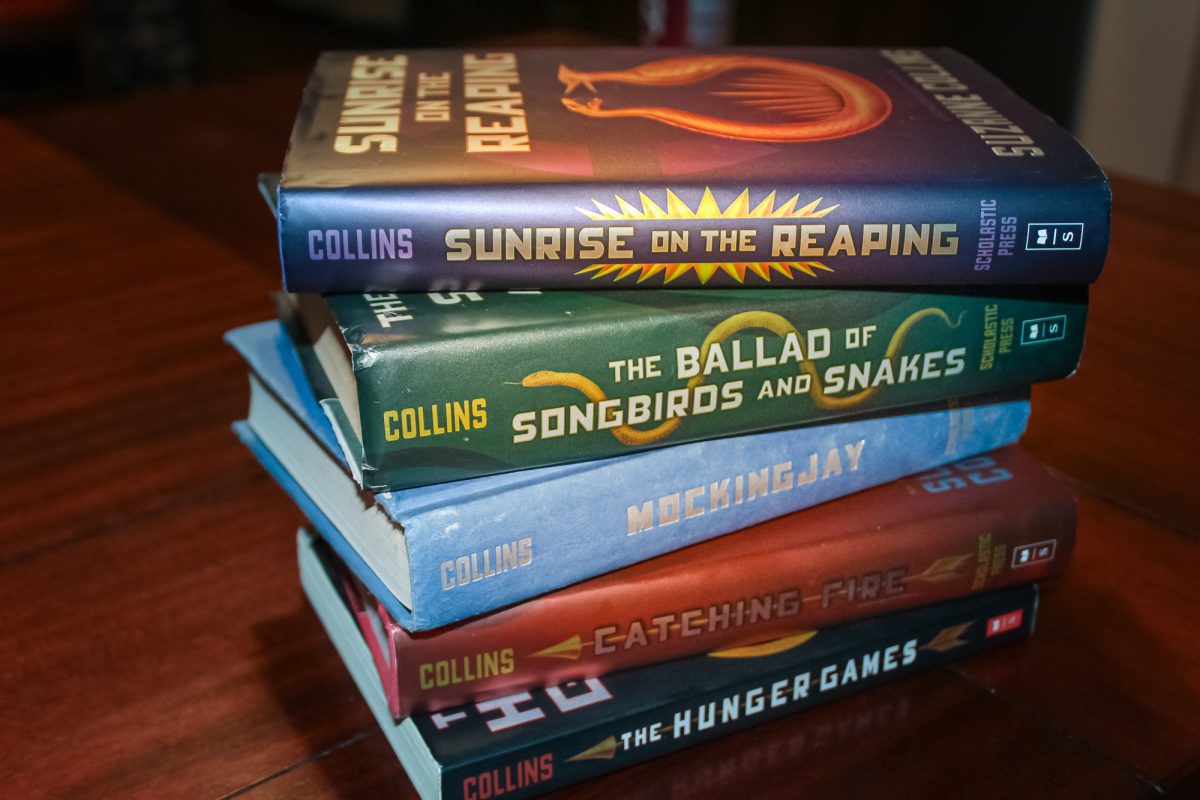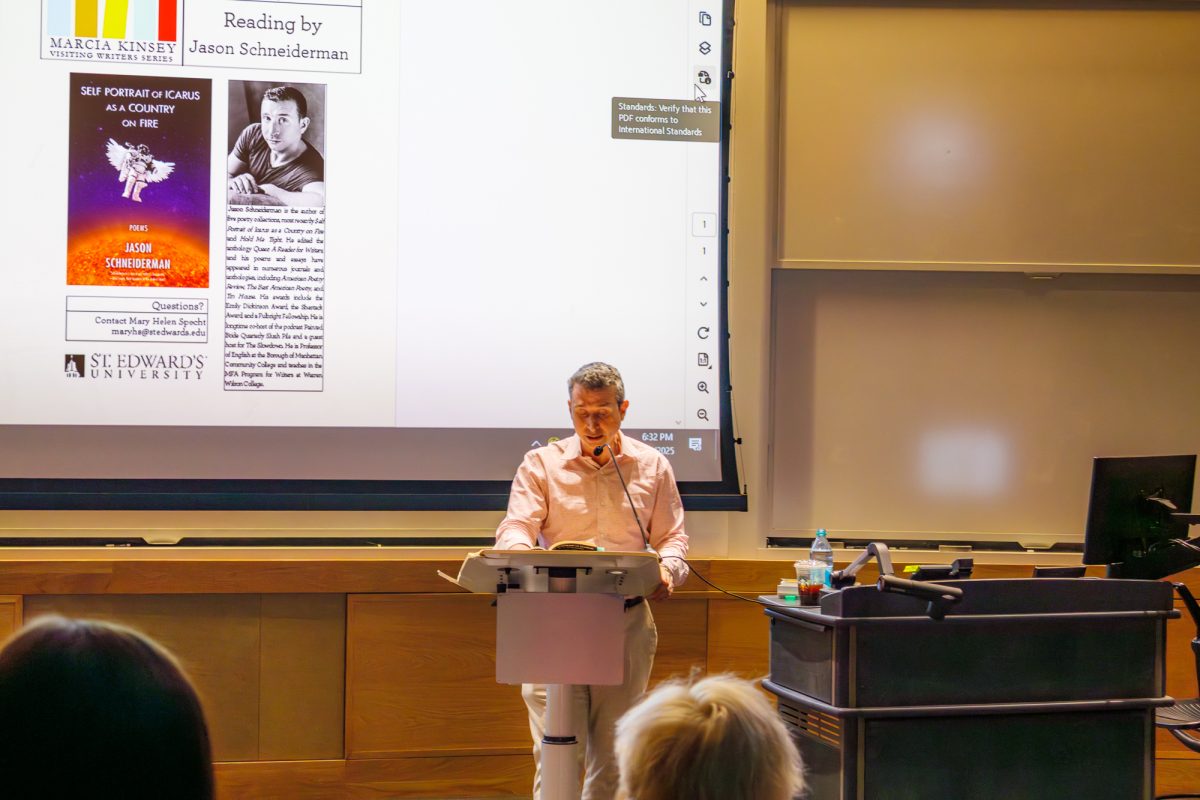The latest installment in proclaimed author Suzanne Collins’ book series, “The Hunger Games,” was released earlier this month. After the trilogy following Katniss Everdeen’s point of view, and a prequel about the antagonist President Snow, Collins shifted the focus onto Haymitch Abernathy and his experience in the 50th Quarter Quell.
The story of “Sunrise on the Reaping” unfolds from the point of view of 16- year- old Abernathy, who’s love struck and determined to protect his family. Back in District 12, we see familiarities and past characters who played a role in the District long before Everdeen. The dystopian world is seen through the eyes and judgement of Abernathy, who quickly confronts the harsh reality of potential death, rape and even the use of AI.
Upon opening the book, Collins placed four quotes: the first from George Orwell, author of “1984” and “Animal Farm,” a quote from poet William Blake and two quotes from philosopher David Hume. The quotes, regarding politics and propaganda, set the tone for the rest of the book.
The book itself not only met my expectations but exceeded them. Without getting into specifics, Collins doesn’t shy away from the traumatic experiences these children have endured, and outlined how long the rebellion had been in action.
I’ve seen claims of people saying the book serves as an almost fan fiction-esque role – but have you never seen an author cater to their audience? Although some of my personal theories and headcanons have been confirmed, there were so many elements to the book that I never saw coming.
This is Collins’ intentional doing; the little snippets of Abernathy’s past that we see in previous books were completely obscured. “Sunrise on the Reaping” is a statement about propaganda and how messages are hindered by government interference. One of the main messages emphasizes the importance of media literacy: being able to question the source of information and critically think about what it means.
We get more in-depth backgrounds on beloved characters and see behind-the-scenes work that supports the events in the original trilogy. While Everdeen is known as an unreliable narrator, Abernathy has a completely different tone. He’s also more perceptive and picks up on things that Everdeen wouldn’t have. Abernathy is outrightly more rebellious, whereas Everdeen was simply trying to survive in her first experience in the games.
Besides the deeply political components, this book also amplifies the role literature plays in the rebellion. With references from Orwell, Edgar Allen Poe and many more, we see how Collins emphasizes the importance of books and their stories in bringing people together towards a common enemy (Aside: the Capitol is confirmed to not only ban but also burn books to keep knowledge away from the Districts…is this ringing any bells?).
My only complaint is that I wish it were longer, so I could keep reading about this universe. I rank “Sunrise on the Reaping” a five out of five goats. If you haven’t read it yet, I urge you to do so as soon as possible.









